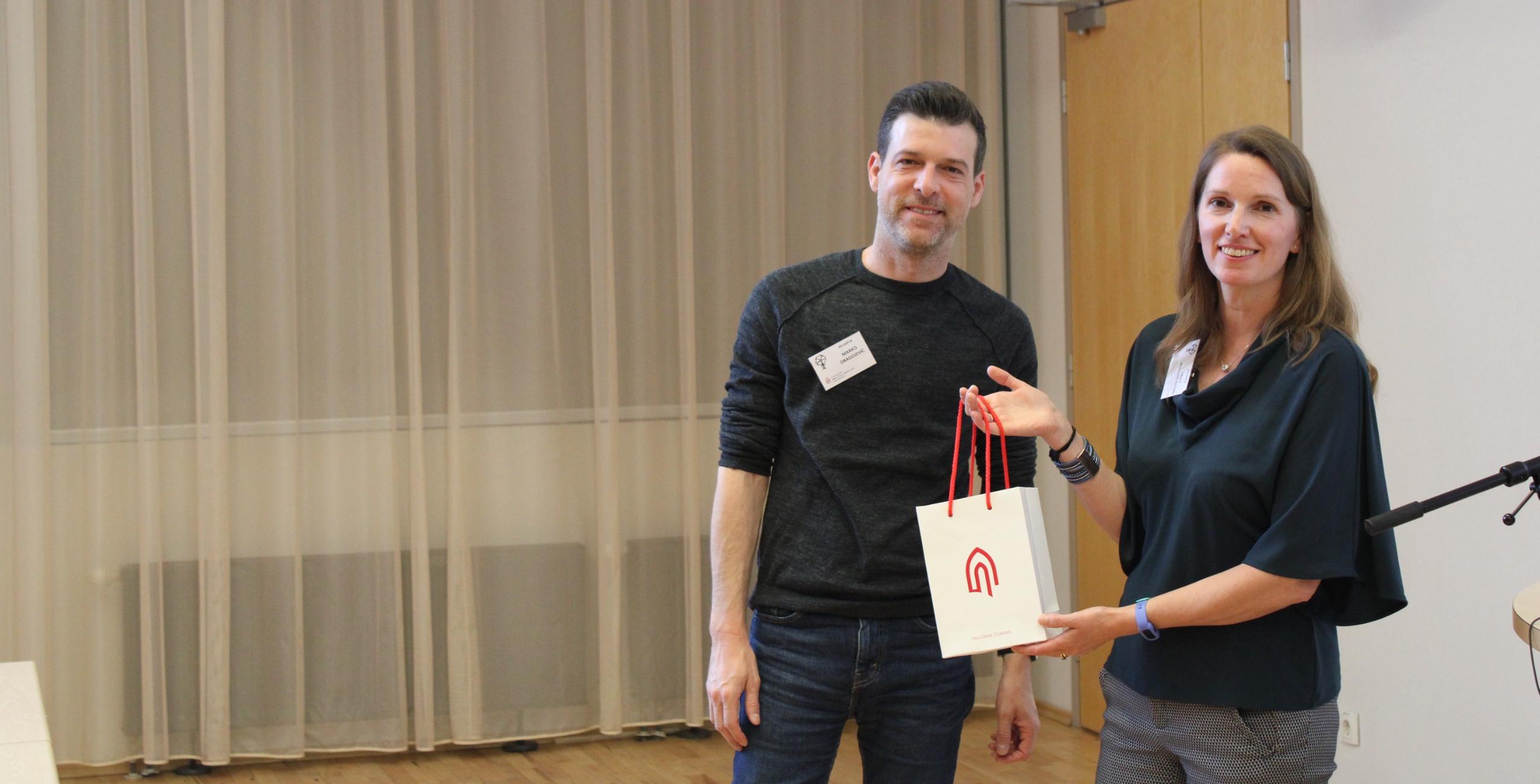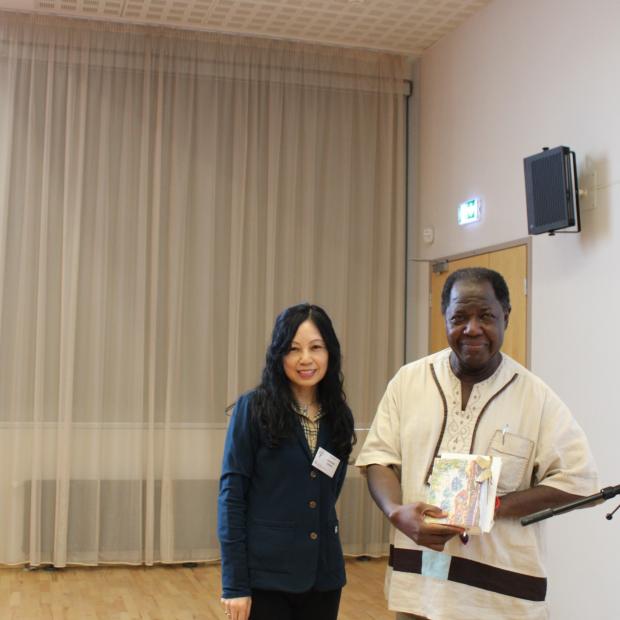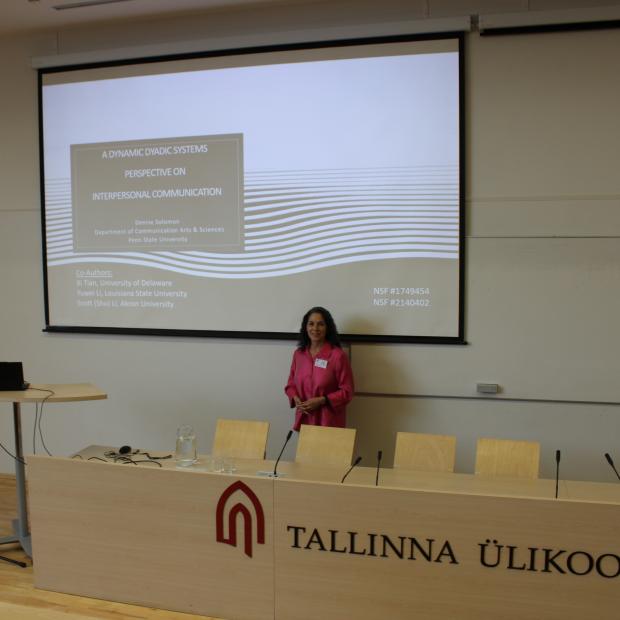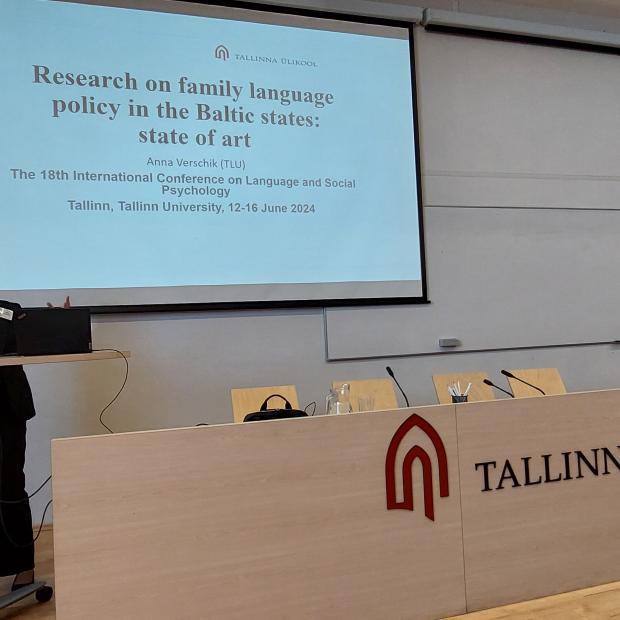Day 4 of the ICLASP18 Conference
The International Association of Language and Social Psychology (IALSP) concluded its biennial conference on June 15. The final day saw a culmination of discussions and presentations focusing on linguistic adaptation, cultural dynamics, and the intersection of language with identity and technology.

The day commenced with a keynote address by Professor Sally Wiggins Young from Linköping University, Sweden, advocating for language adaptation that caters to people's needs rather than forcing individuals to conform to linguistic norms.
A lively Editor Q&A session followed, shedding light on the latest trends in linguistic research and publishing. Four editors replied to numerous questions: Professor Howard Giles is the Founding & Consulting Editor of both the Journal of Language & Social Psychology (established in 1980) and the Journal of Asian Pacific Communication (established in 1990). Professor Karolina Hansen serves as the Editor-in-Chief of Psychology of Language and Communication. Professor Nicholas A. Palomares acts as the Editor of the Journal of Language & Social Psychology. Professor Anastassia Zabrodskaja serves as the Editor of Sociolinguistic Studies and is the Specialty Co-Chief Editor for Culture and Communication: Frontiers in Communication.
Throughout the day, various sessions delved into diverse topics such as language and identity, social media communication, linguistic framing analysis, and the impact of language on political discourse and technology. Notable presentations included studies on intergroup bias in job interviews, impression management strategies of non-native speakers, and the detection of deception through linguistic cues.
_0.jpg)
The attendees of the ICLASP18 Conference took a break from the academic sessions to attend the IALSP Biennial Business Meeting, held during lunchtime. All members were encouraged to participate in this significant event, which featured an agenda covering crucial aspects of the association's activities. The meeting included organization reports and updates from the IALSP Executive Committee, providing insights into the ongoing initiatives and future plans of the association. Moreover, attendees eagerly awaited the election of the IALSP Executive Committee for 2024-2026, acknowledging the importance of shaping the leadership to guide the association in the coming years. The presentation of awards added a celebratory element to the meeting, honoring outstanding contributions to the field of language and social psychology. Furthermore, the announcement of the location for ICLASP19 generated excitement and anticipation among attendees, marking the beginning of preparations for the next edition of the conference. Overall, the IALSP Biennial Business Meeting served as a pivotal moment for members to engage in decision-making processes and celebrate the association's achievements.
The conference also addressed contemporary issues, including linguistic responsiveness in multicultural contexts and cultural dynamics in relationship care. It underscored the influence of political changes on language and discourse, highlighting the relevance of linguistic research in understanding societal dynamics.
In the closing session, Professor Jessica Gasiorek, President of IALSP, expressed gratitude to participants for their insightful contributions, while Professor Anastassia Zabrodskaja, the Conference Chair, highlighted the importance of fostering interdisciplinary dialogue in advancing the field of language and social psychology. Attendees expressed gratitude to Tallinn University for hosting the ICLASP18. TLU provided a welcoming and conducive environment for scholars and researchers from around the world to convene and exchange ideas. The state-of-the-art facilities, including the Mare building and its well-equipped rooms, contributed to the smooth running of the ICLASP18. Additionally, the university's hospitality and support ensured that participants could fully engage in the academic discourse and networking opportunities offered throughout the conference. As the conference came to a close, attendees took a moment to acknowledge Tallinn University's role in facilitating meaningful discussions and collaborations in the field of language and social psychology.
As the conference ended, attention turned to the newly elected IALSP executives, who convened for a meeting to outline future initiatives and directions for the association. Professor Anastassia Zabrodskaja was among those re-elected, securing her position as the Regional Representative (Europe) on the Executive Committee of the IALSP. The conference concluded with participants looking forward to the post-conference cultural and professional networking excursion to Tartu, offering opportunities for continued academic collaboration and professional exchange
For more details and abstracts of the presentations, our readers are encouraged to refer to the conference materials available at the official conference website at https://www.tlu.ee/en/bfm/iclasp18.
The text is authored by Dr. Anastassia Zabrodskaja, who is a Professor of Intercultural Communication, the Head of the Communication Management master’s programme at Tallinn University Baltic Film, Media and Arts School, and the Executive Director of the European Masters in Intercultural Communication (EMICC) teaching and research network.


